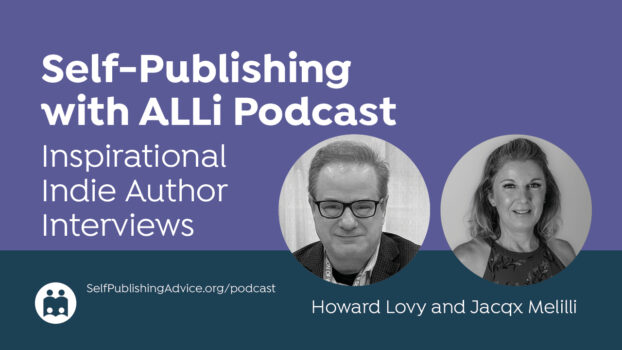Joanne Phillips, author of two novels and nearing the completion of her third, explains how to recruit and use beta readers to fine-tune your work before it's published – an invaluable service that won't cost you a penny.

“Don't forget to thank your beta readers in your book's Acknowledgements,” advises novelist Joanne Phillips.
Put simply, beta readers are people who volunteer to read your work prior to publication and give feedback. They are not editors or proofreaders, and shouldn't be used to replace a professional edit or proofread, although they often pick up mistakes and inconsistencies in your work. Instead they should be considered part of the creative or structural editing process.
How Do You Find Them?
I find mine by asking on my blog, on Facebook, or by email if someone has read for me before. For my third book (my first cosy mystery), I have seven lovely readers lined up: a couple of writers, some genre enthusiasts, and one who doesn’t usually read mysteries but likes my other books.
How Does the Process Work?
Provide each beta reader with a copy of your manuscript in their preferred format, e.g. mobi (Kindle), epub or pdf. If there’s something particular you’d like a reader to comment on, be sure to ask, but this isn’t essential. Sometimes it’s nice to see what different readers pick up on, instead of guiding them to look out for the same things.
Some readers ask for just a partial ms, such as the first few chapters – useful for assessing your book’s capacity to grab the reader. I sometimes ask these what they think will happen as the book progresses – it's a great way to find out if your plot set-up is predictable!
How Long Does It Take?
It depends on your personal schedule, but I generally allow around two weeks. This may seem short, but you need all the comments back in time to action them. Check from the outset that your beta readers can meet your deadline.
What Happens Next?
Now comes the nail-biting moment when you start to receive their comments back … Set aside any expectations that every reader will say: Wow! It was amazing! and roll up your sleeves for some hard work.
In my experience, beta readers’ comments come in three broad categories:
1) Brief but supportive, with the odd inaccuracy or point of confusion pointed out
2) A reasonably detailed overview, with several ideas for improvement
3) Very detailed, broken down into chapters or page numbers, with lots of ideas for changes/improvements.
You might think the latter is the most useful, but each approach has its benefits. At this stage, read through all the comments (I wait until the deadline has passed and read them all together), and highlight any that resonate. Thank your beta readers and move on to the next stage …
What To Use and What To Lose
You don’t need to take notice of everything every beta reader says. The process is immensely valuable, but this is your book and it’s up to you to sift out the comments that will make it better.
The comments that match your own observations, or that nagging feeling you had in your gut that something wasn’t working, will jump out immediately. Several of the beta readers for my last novel, The Family Trap, queried why a major scene was played out over the phone. They’d missed seeing the action. I knew this deep down – I don’t know why I’d done it that way in the first place! I was relieved to have it confirmed, and the comments gave me the confidence to re-write the scene completely.
Comments that don’t resonate shouldn’t be dismissed out of hand. Consider each one and ask yourself these questions:
- Are you avoiding extra work? Sometimes a beta reader makes a valid suggestion but you dismiss it because it means hours of rewriting.
- Have more than two of your readers picked up on this? It could be that a particular part of your writing pressed the wrong buttons with an individual for reasons that are personal only to them, but if a few people said similar things, it’s worth listening.
- If you rewrote it the way they suggest, would it make the book better? This can take a bit of soul searching, but ultimately trust your instincts.
The Final Round
My final edit takes place with all my beta readers’ comments laid out beside me, and I cross them off as I go along. It is a remarkable process, and each time I’ve done it I’ve felt so lucky to have these intelligent, useful, well-thought-out suggestions from people who have given their time for free. Amazing!
To say thank you, always mention your beta readers in your acknowledgments page, and offer to send a copy of the published book so they can see which of their ideas you took on board.




Your’s is a point of view where real initglelence shines through.
I was so confused about what to buy, but this makes it unnlestaddaber.
[…] more information about beta readers and how to use them, check out this post from the Self-Publishing Advice blog at the Alliance of Independent Authors, or this post from K.M. […]
[…] Better Your Books with Beta Readers […]
[…] Better Your Books with Beta Readers by Joanne Phillips […]
I’m just looking for place to start up a blog with a friend where we talk sports in Chicago as well as other things going on nationwide….just for fun. Any suggestions on sites would be great. Thanks..
Bạn Æ¡i trong thống kê ngà y 26 đã có dòng nà y :6) Từ TK 0031000335411 má»™t bạn ủng há»™ 2.000.000 Ä‘Vì bạn gá»i bằng cách chuyển qua mạng hoặc ATM, hoặc không có lá»i nhắn ná»™i dung gá»i nên không biết tên bạn. Tôi sẽ sá»a lại dòng đó. Cám Æ¡n bạn
Hey – nice blog, just looking around some websites, seems a really nice platform you are using. I’m currently using WordPress for a few of my sites but looking to change one of them over to a platform similar to yours as a trial run.
[…] https://selfpublishingadvice.org/better-your-books-with-beta-readers/ […]
If it’s in e-format, in what form will the comments come on? i.e. edited in the actual epub, written in a separate word document?
[…] you’re asking them to rip apart your beautiful work of art. If it’s your first time recruiting beta readers (like it was for me), then thoughts of self-doubt and uncertainty are likely in the forefront of […]
[…] to publication. ALLi has already posted articles on finding and working with beta readers (e.g. Better Your Books with Beta Readers), so I won’t cover that […]
This blog was… how do you say it? Relevant!!
Finally I have found something which helped me.
Thank you!
I am preparing to write my first novel, and through internet research I found your blog. Thank you for the tips on Beta Readers, it is something to keep in mind.
Hi Heather:
Good luck on your novel.
Thank you so much for this wonderful article. I love my beta readers and took the opportunity to send them this link and *thank* them for all their invaluable help!
Nice article. I’ve always used both crit partners and beta readers before giving it to the editor. This is especially important with mysteries because I want to see whether the clues I dropped are picked up or not. Beta readers can also tell you who they suspected and when, and whether the mystery was too easy or too hard.
One thing I’ve done is hand out a questionnaire and encourage readers to fill it out. I also encourage shout backs in email as they’re reading so I get a feel for how the mind is thinking while reading. It’s especially fun with a mystery that has romance in it, because you can see the reader’s mind swing with both suspects and how the love story is going.
I’m also trying Wattpad for the first time. I’m posting my post-beta and pre-edit version on Wattpad. This way any corrections from comments of feedback can still make it before my editor gets it. Thanks for posting and I look forward to the Wattpad article, because right now, I don’t have many readers or commenters there.
Helpful advice honey, thank you 🙂
x
One of the interesting things internet self-publishing may have wrought is writers examining what ‘help’ they really need.
It occured to me, reading these posts that when all these ‘writers’ were in school, they never ‘hired’ editors to write term papers. I mean, it IS possible to create a piece of writing without ‘paying an editor to edit’.
People, snap this idea out of your heads. USE beta readers and other people who like to read; for IN FACT, you are writing FOR this bunch.
Not an editor.
And there, in a breath of realization is our whole issue with traditional publishing. They try to convince you that ‘you are is nothing without me’.
Just like any dominant culture that NEEDS to dominate.
Heather
wordwan
This is a great article! I was just talking to one of my clients about the beta reader process. I’m a copy editor and a book definitely needs to go through a thorough beta process and/or structural edit before going to a copy editor. This is an excellent resource I’ll refer my writers to frequently now. Great job!
Very helpful, could have done with that help with my first two. Thanks, will retain(am halfway through Number Three!).
[…] You can read more HERE. […]
Hi,
I didn’t use beta readers for the first book but would like to for the second. You mention you incorporate the changes on the last edit. Is this the edit before you send the book to the developmental editor? Or the copy editor/proofreader? I guess I’m confused as to when would be the best time to add the suggestions.
I normally do 4/5 edits before I then send my book to the dev. editor. Then after I incorporate their changes, it goes to an editor/proofreader. It would seem that this step would fit best just before I send it to the dev editor as confirmation of the beta readers thoughts, but not sure.
Thanks.
I’ve indadvertedly stumbled across another resource that provides you beta readers even if you don’t have a blog or a Facebook page. It’s the site called Wattpad, where you can safely publish all or excerpts of your book. There’s a community of millions of authors and readers voraciously reading each other’s work and, in many cases, providing constructive feedback.
I’ve published the opening chapters of my first novel on there just to get some initial feedback. Not having been published before, I was keen to see what the reaction was to my premise and the style of my writing. Well, the Wattpad community has come up trumps. I’ve had all sorts of feedback, ranging from comments that just make you feel good to really detailed plot points to a few readers who seem to see themselves as copy editors, checking out my grammar and spelling. In all cases, the feedback has been useful and I’ve made changes as I’ve gone.
Take a look for yourself. The site is http://www.wattpad.com.
Ian, thanks for sharing your very positive Wattpad experience. We’re planning a post here on Wattpad in the next few weeks so watch this space!
I was wondering about the protocol / etiquette on this subject. Thanks for sharing – great synopsis.
Thanks Kristen, was there anything more specific you needed to know?
Hi Joanne, I have just tried to log on to your system but it does not send the email for me to subscribe. Can you contact please?
Regards,
Betty
Hello Joanne:
I want to thank you for this enlightening article. As a disabled writer, I am limited in the ways that I can try to better the books I have written. Thankfully, through your articles and others that I read, I hope to slowly become a better writer.
[…] I’m guesting on the brilliant Self-Publishing Advice blog from the Alliance of Independent Authors (Alli). My post is all about Beta Readers – how to […]